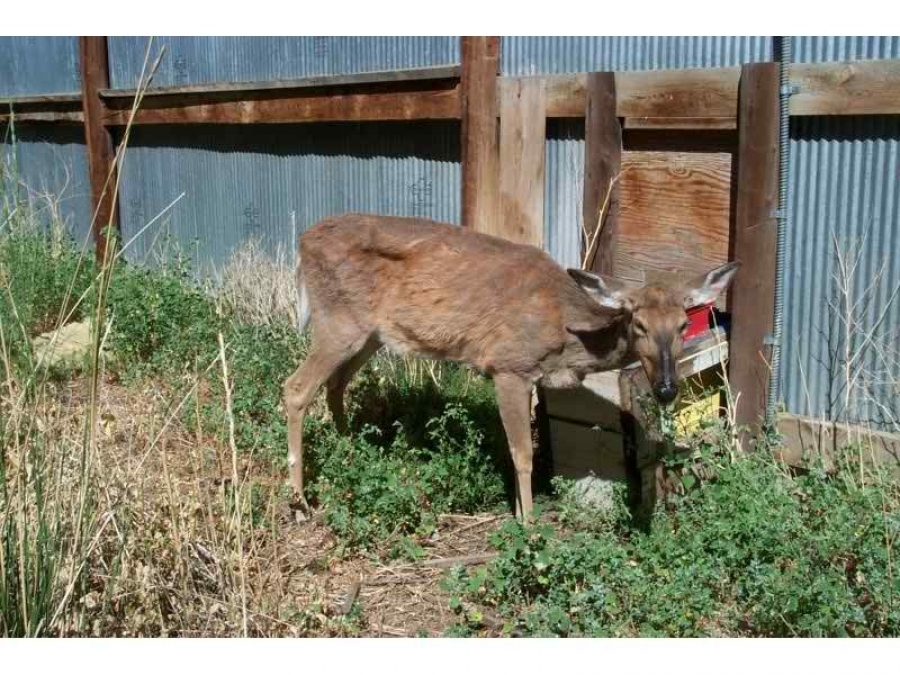
Experts say a deer at a Wisconsin shooting preserve is infected with chronic wasting disease
MILWAUKEE (AP) — Scientists have confirmed that a captive deer at a northwestern Wisconsin shooting preserve has tested positive for chronic wasting disease.
State agriculture officials announced Thursday that the National Veterinary Services Laboratories in Ames, Iowa, confirmed the 3-year-old doe at Thundeer Trophy Whitetails in Birchwood was infected, the Milwaukee Journal Sentinel reported.
Records show the doe was transferred from Rodenkirch Whitetails and Genetics, a deer farm in Beaver Dam, to the preserve on Oct. 4. The disease hadn’t been found at either facility at the time of the transfer, although a doe at the Rodenkirch farm tested positive in March. As a result the doe at Thundeer Trophy Whitetails was culled from that facility’s herd. The preserve has about 300 deer spread across 150 acres.
Chronic wasting disease is an always-fatal neurological disease in deer, elk and moose. It’s been found in 31 states, four Canadian provinces and several foreign countries, according to the U.S. Geological Survey’s National Wildlife Center. It was first detected in Wisconsin in 2002.
Deer can be tested for chronic wasting disease only after they’re dead. State agriculture officials didn’t say when the doe at Thundeer Trophy Whitetails was killed.
Wisconsin has about 300 deer farms or shooting preserves, according to state records. Forty-one have seen animals infected with chronic wasting disease since 2001. The disease has forced 22 facilities to depopulate.
Eight deer farms and 12 shooting preserves with the disease are still operating, according to state records.
TOP PHOTO: FILE
No related posts.










